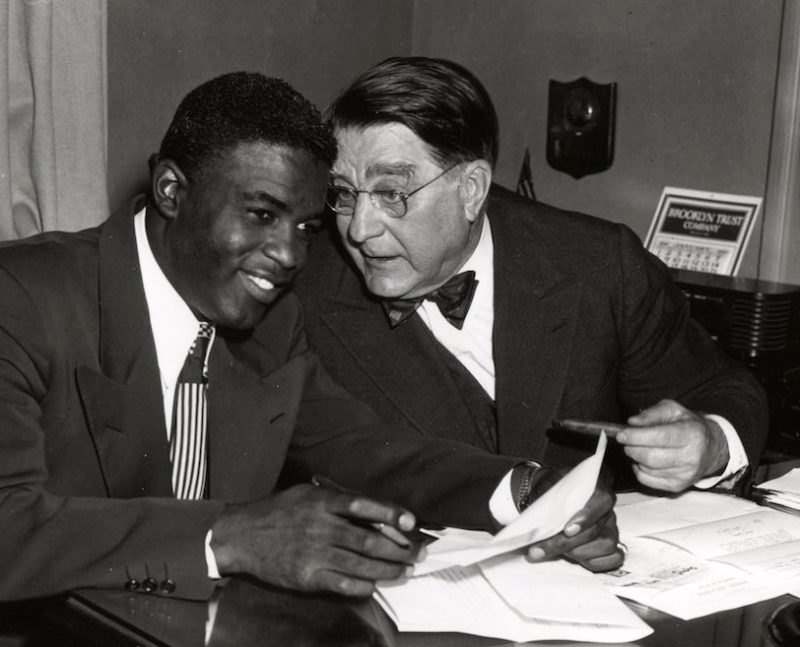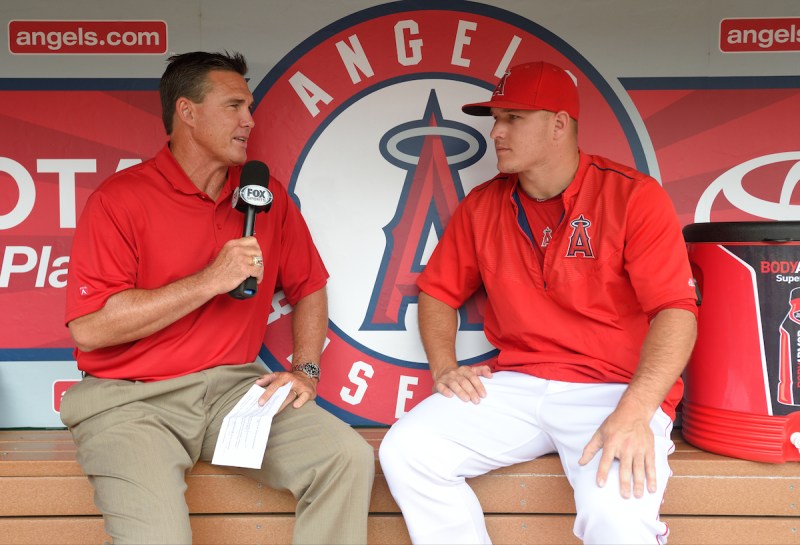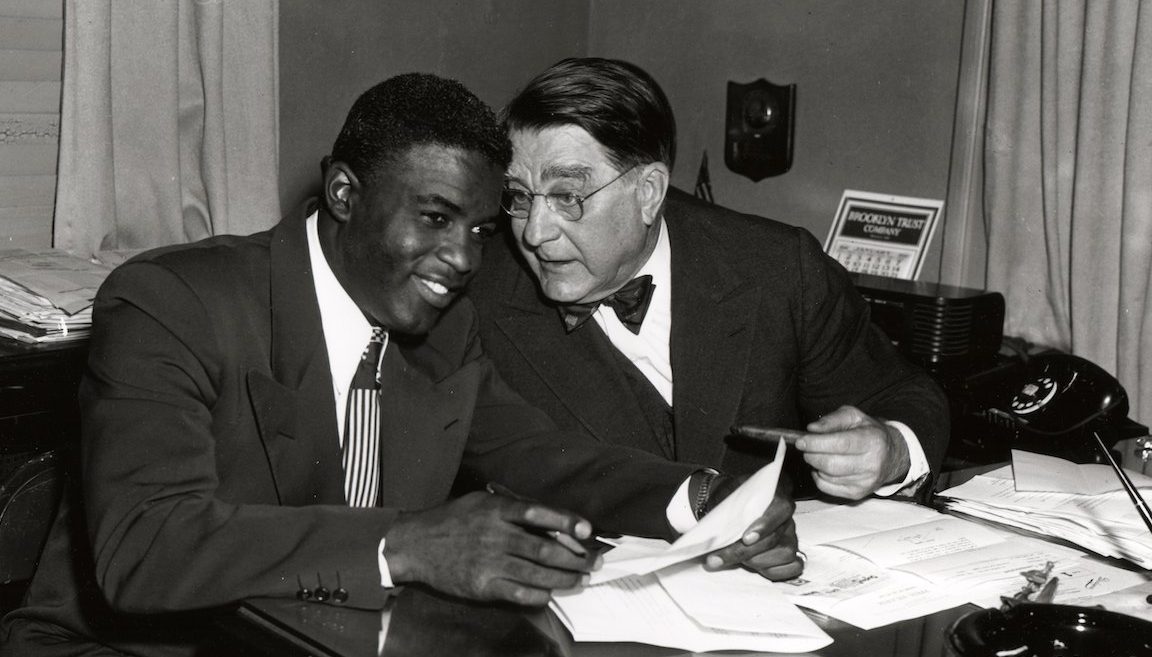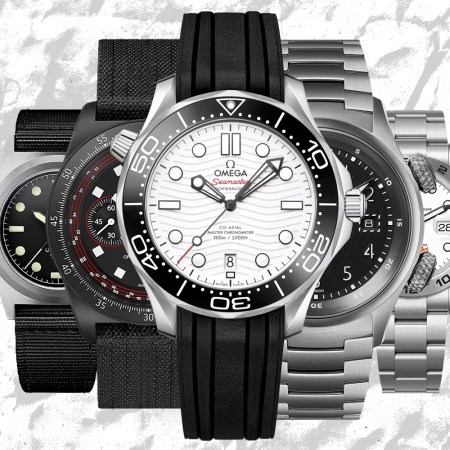
The NFL has seen Colin Kaepernick emerge as an endless topic of debate and its defending Super Bowl champion New England Patriots become known as Donald Trump’s team—even as a number of their players refuse to go the White House.
The dominant basketball player of his generation, LeBron James, has become increasingly outspoken politically and NBA Commissioner Adam Silver has been supportive of the league, its players, and their communities having a “conversation” about the Black Lives Matter movement and not standing during the National Anthem.
And in baseball, Bryce Harper triggered a controversy by suggesting that players in his sport should be able to “express yourself” in terms of “fashion.” (And yes, by “fashion” he meant exactly that—he wanted to encourage players to dress more flashily like a “Beckham” and potentially command more endorsements as a result.)
The knee-jerk reaction is to say baseball is stuck in the past, except MLB history includes:
—Jackie Robinson breaking the color barrier in 1947.
—Roberto Clemente championing the rights of Latinos before dying at just 38 when his plane crashed on a relief mission to Nicaragua after an earthquake.
—Sandy Koufax refusing to pitch Game 1 of the 1965 World Series because it fell on Yom Kippur. (Koufax was the MVP of the Series anyway, going 2-1 with a minuscule ERA of just 0.38.)
—Curt Flood sacrificing much of his own career to make free agency possible for other players.
Today, baseball players are arguably in the most enviable position of athletes in any sport. Their contracts are massive, with the Miami Marlins having cracked the $300 million barrier for Giancarlo Stanton, and unlike the NFL that contract money is guaranteed. Their careers tend to be longer as well, lasting on average 5.6 years to 4.8 for the NBA and 3.3 for the NFL.
So why has baseball grown so quiet?
There are a number of reasons:

Silent stars. Derek Jeter. Mariano Rivera. Albert Pujols. Mike Trout. What do you know about these players’ political views? What do you know about these players’ lives off the field at all? (You might have heard about Jeter’s exes, and even that’s a part of his life he’s done his best to keep out of public view.) Quite simply, baseball’s biggest stars in recent years have been deeply reserved people. Look at Trout above: this is a man who will give interviews because it’s part of his job, but clearly has better stuff to do. The one notable exception among baseball’s elite is Bryce Harper. Unfortunately, Harper’s star has been dimmed by his struggles with injuries, inconsistent performances on the field, and the Nationals’ failures to advance in the postseason.
The Schilling Factor. Former pitcher Curt Schilling is the most politically outspoken person associated with baseball. That said, he’s no longer actively involved with the sport, having been fired as a commentator by ESPN. It’s possible to see Schilling’s termination as a message to keep politics out of baseball (especially if you have the former Red Sox star’s particular views), but it’s a bit more complicated. On the mound, Schilling was often remarkable—particularly come October—but off of it he’s posted his share of losses. During his career, he made GQ‘s list of the “Ten Most Hated Athletes,” as former teammates and managers alike critiqued him. In retirement, the criticism continued, with ex-teammates like Mitch Williams openly blasting him. Indeed, even with the anti-transgender post that led to ESPN terminating their relationship, Schilling made the situation worse by trying to backtrack—stressing he “didn’t post” the message, but merely shared it. Post-ESPN, Schilling hosted a pro-Trump rally in Boston that wound up drawing attention for how shockingly few people it actually drew. (Seriously, the Man with the Bloody Sock could only attract 15 people in Beantown?) In short: If a figure like Muhammad Ali inspired other athletes to speak out, one like Schilling might make a baseball player, whatever their political allegiance, think, “Eh, it’s probably not worth the trouble.”
A truly international game. In 2016, there were 238 players born outside the United States on Opening Day rosters. They came from 18 countries and territories and filled 27.5 percent of roster spots. From Cuba to Korea, baseball features players from all over the planet speaking a variety of languages. (Though primarily Spanish, which is why MLB now requires every team to have a translator on staff.) Indeed, sometimes there are unexpected connections language-wise: the Dominican All-Star Alfonso Soriano played for the Hiroshima Toyo Carp before joining the New York Yankees, with the result he once found himself the only player on the Cubs who could communicate with Japanese teammate Kosuke Fukudome (who became an All-Star himself).
Quite simply, a good number of players on a given team probably won’t spend too much time on controversies involving American politics because they’re still in the process of discovering this country. Likewise, with 162 games to play, a franchise may be so focused on transcending language and cultural barriers to ensure everyone’s on the same page baseball-wise that the world outside the clubhouse is ignored.

Of course, this diversity may also be key to some players getting more politically engaged. International players have expressed concern about how Trump administration policies may affect them. While Latin players are particularly attentive, it’s also impacting other players in unexpected ways. Take All-Star Yu Darvish. Darvish, while born and raised in Japan, has an Iranian father. The Texas Rangers have been trying to confirm this won’t create any problems, particularly when they cross the border to Toronto. Additionally, Darvish’s father occasionally attends his son’s games—will this still be possible in 2017?
The result may be the next Kaepernick won’t be on the gridiron, but the diamond.
—Sean Cunningham for RealClearLife
The Charge will help you move better, think clearer and stay in the game longer. Subscribe to our wellness newsletter today.



















